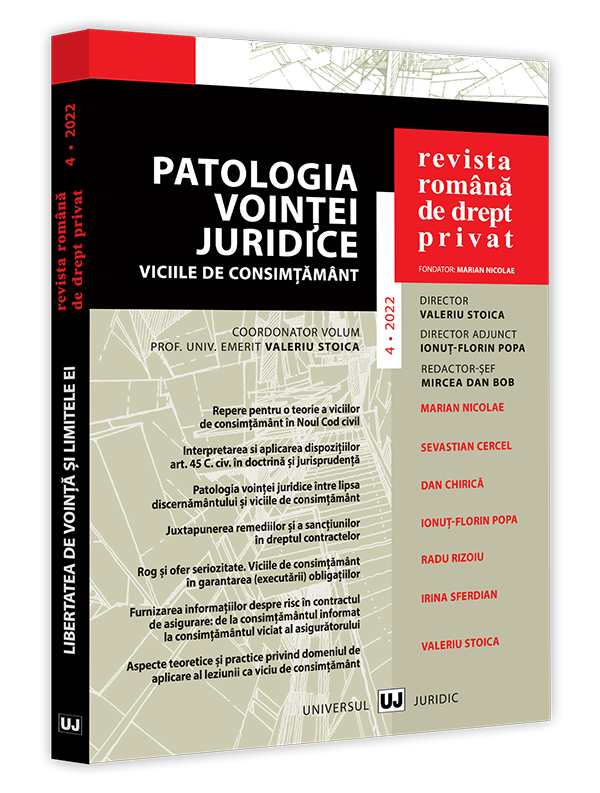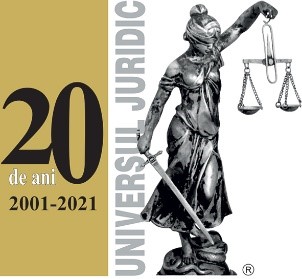ON THE EXCUSABILITY OF SPONTANEOUS AND PROVOKED ERROR
Abstract
The error as a defect of consent, reason for avoiding a contract, raises, among others, the question of the priority of the interests of the two contracting parties, respectively that of protecting the stability of the legal relationship and, implicitly, the security of the civil circuit. The rule in the matter is that of the prevalence of errans' interest in not being bound by a contract at the conclusion of which he or she did not give an informed consent. This rule finds its limit in the inexcusable character of the errans’ error. Every time errans is in error because of his or her own negligent, culpable behaviour, consisting in not effectively informing oneself in advance regarding the fact affected by the error, their interest is sacrificed, and the request regarding the avoidance of the contract is rejected. Their error is an inexcusable one. This may be proved by any means of evidence, the judge being sovereign in assessing the inexcusable character of the error. The standard of behaviour applicable to errans is an objective one concretely, that of an average diligent and prudent person, of about the same age, having the same life experience, same level of education and same profession as errans.
Published
Versions
- 2023-04-11 (2)
- 2023-02-26 (1)









